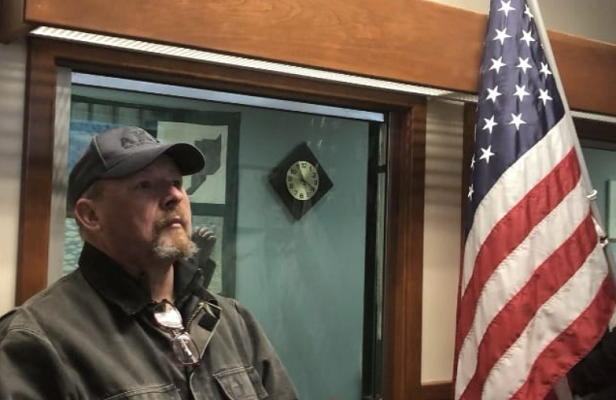Now comes, the Appellant Daniel Richard, pro se, pursuant to Supreme Court Rule 16 (8), submits this Sur-Reply to the Appellee’s Objection to the Appellants filing of Motion for Leave to file Late Authorities in this election law case, stating as follows:
THE STATE OF NEW HAMPSHIRE SUPREME COURT
No. 2023-0097
Daniel Richard v. Christopher Sununu, et al.
- On the 3rd day of June, the Town of Auburn has objected to the Appellants filing for leave of the court to file a new late authority from the Supreme Court of the United States, claiming that its recent decision in ALEXANDER v. SOUTH CAROLINA STATE CONFERENCE OF THE NAACP, 22-807 602 U.S.___ (2024), (Alexander) is irrelevant to this instant case, which is simply not true.
Summary
- On the 14th day of August, the Appellant file a notice of new late authorities citing the recent decision of Moore v. Harper, 600 U.S. 1 (2023), “Harper” and the New York State Rifle & Pistol Assn., Inc., et al. v. Bruen— 20-843 (U.S. June 23, 2022), “Bruen” and the District of Columbia v. Heller, 554 U.S. 570 (2008), as binding precedent.
- Both the Town of Auburn and the state Appellee’s chose not to object to the Appellants filing of these new late authorities (Aug. 14 2023) (Moore, Bruen, Heller, decisions), therefore, they have waived their right to object to the evolution of those precedents as cited in the Alexander decision which cites, and reinforces the Appellant’s citation of new late authorities in recent SCOTUS decisions in Moore, Bruen, Heller, on August 14th, 2023.
- The Town of Auburn claims as its objection on pg. 1-2, item 4, that Alexander case is not relevant because it is simply a redistricting case base “racial or partisan gerrymandering” and that did not create binding precedent about – any of the issues at play in the present case”; and on pg. 2. Item 5, that nothing in Alexander case is relevant to how this Court should interpret Part II, Article 32, of the New Hampshire Constitution.
- Such a claims by the Town of Auburn has omitted a fact in law. The Smiley court precedent in 1932, established a detailed list of at least 12 other duties of the legislatures of the several states (see below), besides redistricting. The Smiley court (1932) Harper (2023) precedents reinforced a fact in law that a citizen, elector, and taxpayer of a State has constitutional standing under the Article I §4, cl. 1. to challenge ultra vires actions of the legislature.
- The Smiley, Moore, and now Alexander decisions, are a line of redistricting cases going back to Smiley in 1932, which examined in great detail the Federal Elections Clause (Article I §4, cl. 1), and the duties of the legislatures of the several states when exercising their law-making powers under Article I §4, cl. 1.
- The Appellant cited in his Memorandum of law on standing, filed on 24th day of April which stated on pg. 6, that the Smiley court (1932) examination of Article I §4, cl. 1, specifically listed twelve other important duties of the state legislatures besides redistricting. SCOTUS lists some of the state legislatures’ other duties under Article I §4, cl. 1, duties besides redistricting on pg. 21—22 of the Moore v. Harper opinion:
“By fulfilling their constitutional duty to craft the rules governing federal elections, state legislatures do not consent, ratify, or elect—they make laws. Elections are complex affairs, demanding rules that dictate everything from the date on which voters will go to the polls to the dimensions and font of individual ballots. Legislatures must “provide a complete code for congressional elections,” including regulations “relati[ng] to notices, registration, supervision of voting, protection of voters, prevention of fraud and corrupt practices, counting of votes, duties of inspectors and canvassers, and making and publication of election returns.” (Emphasis Added) [Smiley v. Holm, 285 U.S. 355, (1932)]; (Moore v. Harper et al. (2023)).
- On the 29th day of November at oral arguments neither the Town of Auburn, nor the state Appellee’s address any of the federal questions, and failed to object to the late authorities of August 14, 2023. Therefore, they have waived their right to object now.
- On the 25th day of April, the state Appellee’s, responding to the courts request for supplemental brief on the issue of standing, and chose not to address any federal questions, and it failed to object to the Appellants late authorities of August 14, 2023. Therefore, they have waived their right to object now.
- On the 25th day of April, the Town of Auburn also filed a supplemental brief on the issue of standing. The Town acknowledges a fact in law on page 9-10 of their brief, that the Federal Election Clause, Article I §4, cl. 1, is controlling, and binding on the N.H. Legislature.
“See Kibbe, 142 N.H., at CITE (“At the same time, we have long recognized that the legislature is entitled to regulate the time, place, and manner of elections in New Hampshire…” (emphasis added)); see also U.S. Const. art. 1, s 4 (“The Times, Places, and Manner of holding Elections for Senators and Representatives, shall be prescribed in each State by the legislature thereof, but the Congress may at any time by law make of alter such Regulations, except as to the Places of chusing Senators.” (emphasis added)).
- The Plaintiff’s right to vote in State and Federal elections is protected by both the Const. N.H. Part I, art. 11 and U.S. Constitution Article 1, Section 2, and the Seventeenth Amendment and the laws written pursuant thereof. As the manner in which the Federal elections are conducted is question, and now under, Smiley, Moore, Alexander, line of cases under Article I §4, cl. 1, must now be examined under the Heller, Bruen, methodology applies, as the Plaintiff’s Federal voting rights are affected. The plain text of the Plaintiff’s voting rights is satisfied as he is an inhabitant of N.H. (defined by the Const. Part I, art. 11), and the Plaintiff is one of the people under the U.S. Constitution Article 1, Section 2, and the Seventeenth Amendment. Therefore, these cases are relevant and controlling in this instant case.
“Although the Elections Clause does not exempt state legislatures from the ordinary constraints imposed by state law, federal courts must not abandon their duty to exercise judicial review. This Court has an obligation to ensure that state court interpretations of state law do not evade federal law.” Moore v. Harper et al. (2023) Syllabus Pg. 5.
CERTIFICATION
I, Daniel Richard, do hereby swear that on June 7, 2024, I did e-mail a copy of this to all the named Parties via the Supreme Court web portal.
Dated: June 7, 2024
Daniel Richard
/s/ Daniel Richard
VERIFICATION
I, Daniel Richard, certify that the foregoing facts are true and correct to the best of my knowledge and belief.
Dated: June 7, 2024
Daniel Richard
/s/ Daniel Richard

